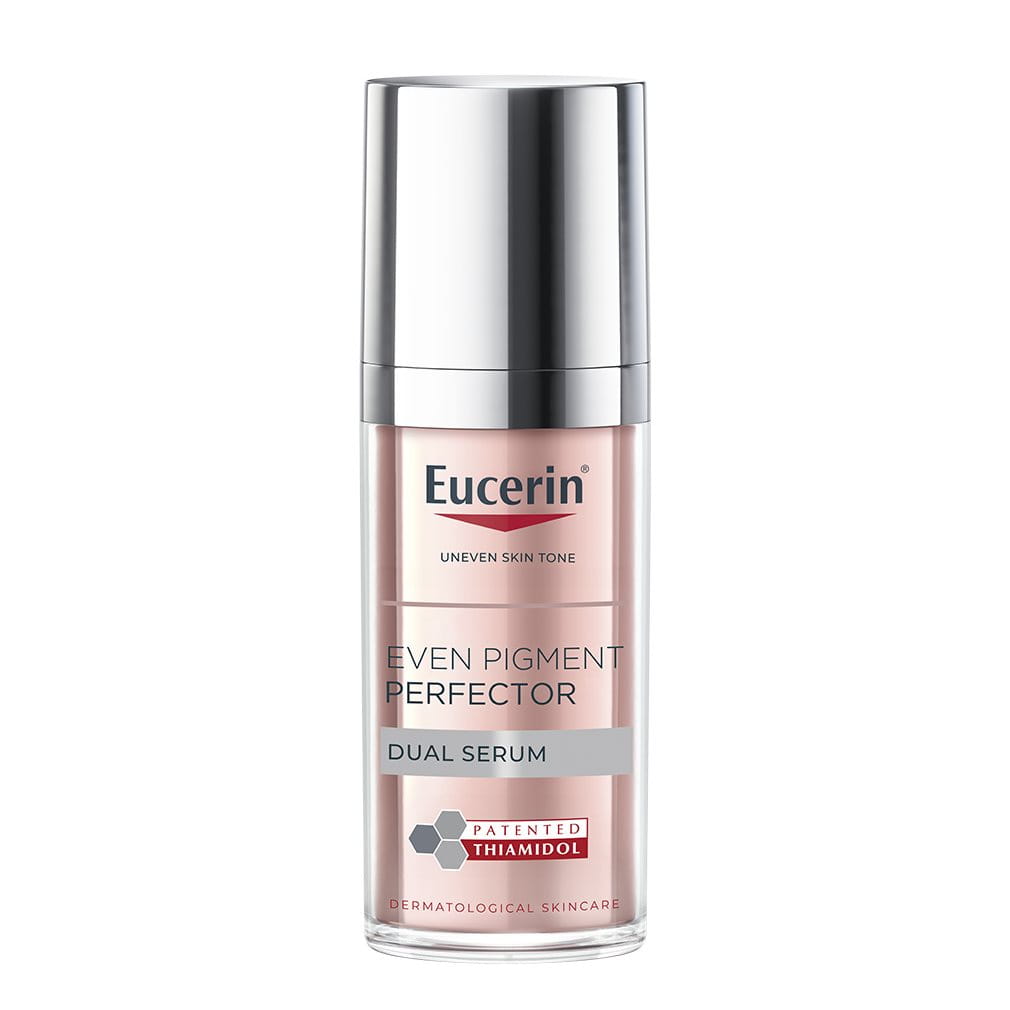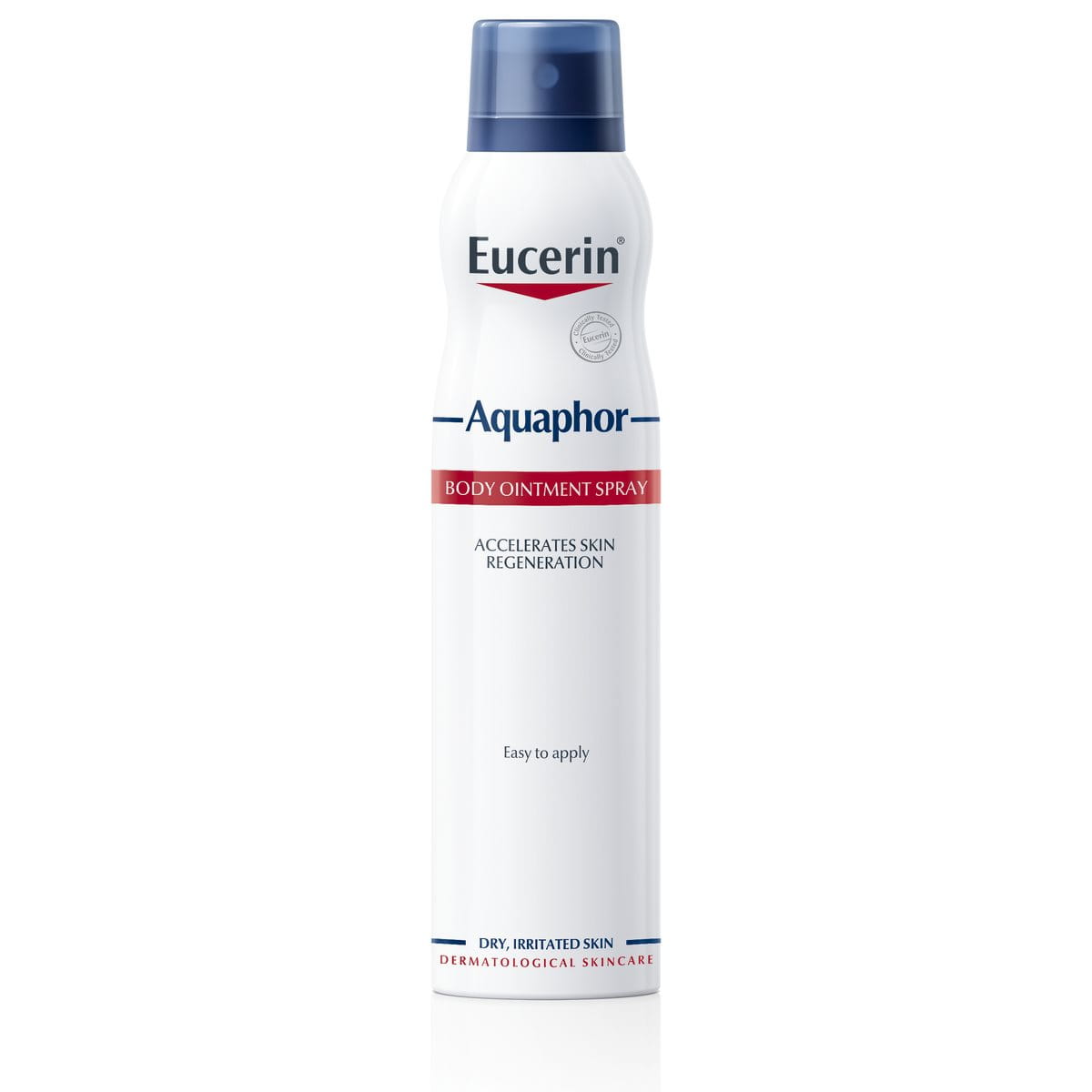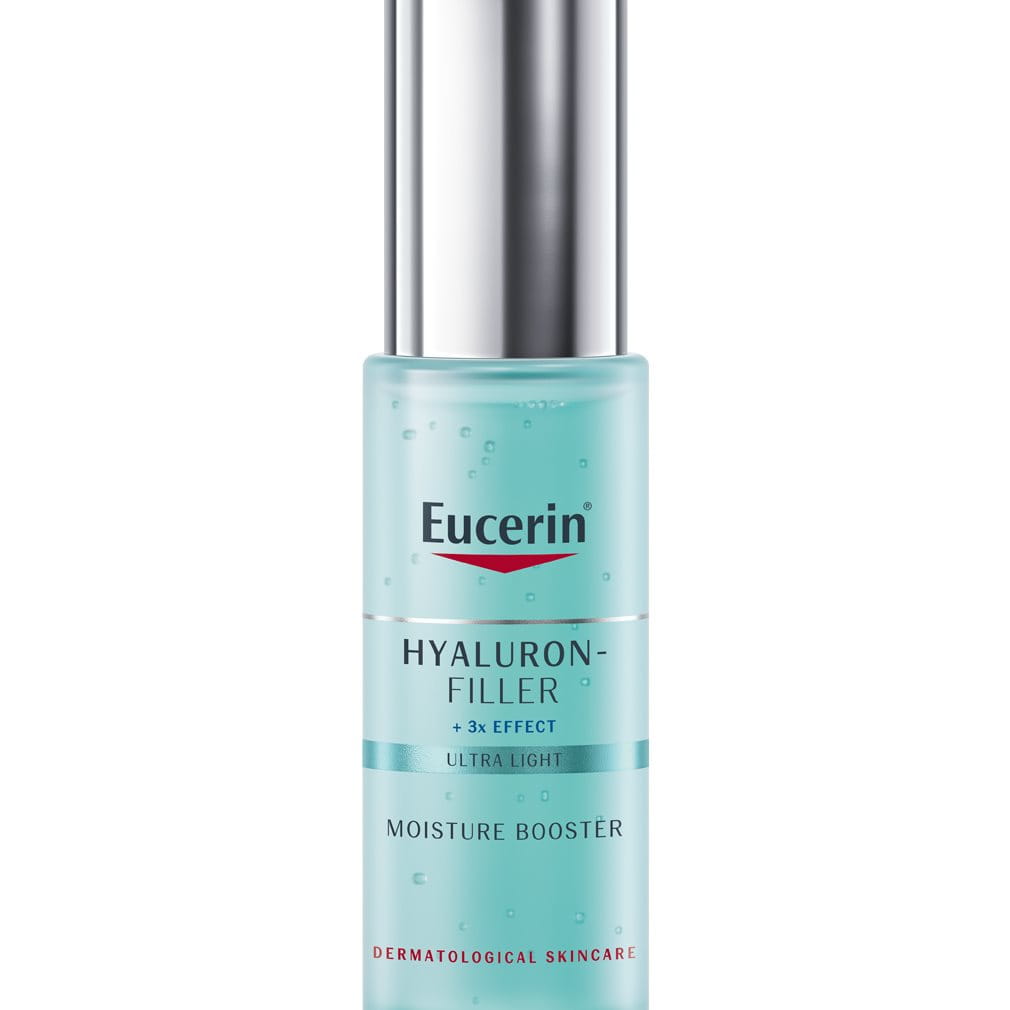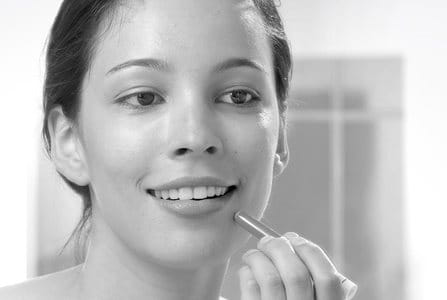We take responsibility. For your skin. And our planet.
About
A non-greasy facial sunscreen for oily and acne-prone skin
UV light is the main cause of sun-induced skin damage, but high-energy visible (HEVIS) light can also induce free radicals that cause further stress to skin.
Eucerin Sun Gel-Cream Oil Control SPF 50+ is an everyday facial sunscreen for oily and acne-prone skin. The Advanced Spectral Technology combines broadband and photostable UVA and UVB filters1 for very high UV protection, also with Licochalcone A to neutralize free radicals caused by UV and HEVIS light. The sunscreen also includes Glycyrrhetinic Acid which supports skin’s own DNA repair mechanism.
Sebum-regulating Oil Control Technology with L-Carnitine and lipid-absorbing micro-pigments gives skin an immediate dry touch finish and a long-lasting anti-shine effect.
Eucerin Sun Gel-Cream Oil Control SPF 50+ is unperfumed and has an ultra-light, non-greasy texture. Clinical and dermatological studies prove very good skin tolerability on sensitive and acne-prone skin.
1Meeting the high standards for UVA and UVB protection defined by Cosmetics Europe. The levels of UVA protection are higher than the EU recommendation.
Main findings
How do I know which SPF to use?
Sunscreens are available in four different levels of protection: low (factor 6 to 10), medium (15 to 25), high (30 to 50) and very high (50+). The higher the protection factor the better your skin is protected, but it’s important to apply the product thoroughly (be careful not to miss any bits) and to reapply it generously every two hours.
Can sunscreen clog my pores and lead to breakouts?
Some people with oily and acne-prone skin are concerned that sunscreen will worsen their symptoms and avoid sun protection altogether. Specially formulated products such as Eucerin Sun Gel-Creme Oil Control Dry Touch SPF 50+ are designed to manage oily and even improve acne-prone skin conditions.
My skin is acne-prone. Do I need special suncare?
Yes. Effective sun protection is essential for all skin types and it’s particularly important for acne-prone skin for a number of reasons:
- To protect against hyperpigmentation: As skin affected by acne show a high degree of inflammation, it is particularly prone to hyperpigmentation and excess melanin is produced. This surplus melanin remains after the spot has healed leaving a pigmentation mark. These pigmentation marks are particularly susceptible to the sun and the right sun protection will help to prevent them from darkening and becoming more noticeable.
- To prevent skin from drying out: Oily skin still needs moisture. Over exposure to the sun causes it to dry out and the sebaceous glands (which products the sebum that gives skin the oil it needs) go into overdrive. This excess sebum is one of the key stages in the development of blemishes. When skin dries out its external layers harden and this can get in the way of the natural skin-shedding process. Dead skin can build up, block pores and exacerbate acne.
It’s also important to be aware that some acne medication and skin peels can make skin more sensitive to the sun and more susceptible to sun-induced skin damage. Products specially formulated for acne-prone skin, such as Eucerin Sun Gel-Creme Oil Control Dry Touch SPF 50+, will give it the protection it needs. Our product is also ‘non-comedogenic’, which means it doesn’t contain ingredients that might block pores and trigger blemishes.
The ultra-light formula has a sebum-regulating Oil Control Technology with L-Carnitine and absorbing micro-pigments. It leaves an immediate dry touch finish and a long-lasting anti-shine effect.
Why do I need to integrate sun face care into my daily routine?
Facial skin is more sensitive to UVA/UVB radiation and HEVIS light than skin on the rest of the body as it is exposed to sun all year round. Sun protection can help you avoid the cellular DNA damage caused by UV, photoaging (premature aging caused by the sun) and hyperpigmentation. It is important to protect facial skin whenever it is exposed to the sun.
What is the difference between UVA and UVB rays?
UVA rays penetrate the deeper layers of skin. They stimulate the production of free radicals that cause oxidative stress and can lead to indirect DNA damage. UVA rays are most commonly associated with photoaging (premature skin aging caused by the sun). They can also trigger sun allergies such as Polymorphous Light Eruption (PLE). UVB rays can also provoke allergies, but to a lesser degree.
UVB rays provide the energy your skin needs to make Vitamin D and stimulate the production of melanin which is responsible for tanning. They don’t travel as deeply as UVA rays, penetrating only the outermost layers of skin, but they cause more immediate damage such as sunburn. UVB rays are directly absorbed by cellular DNA which can lead to skin diseases such as actinic keratosis and skin cancer.
Both types of UV rays can induce hyperpigmentation and may contribute to conditions such as sun spots (also known as age spots) and melasma.
Read also some related articles















